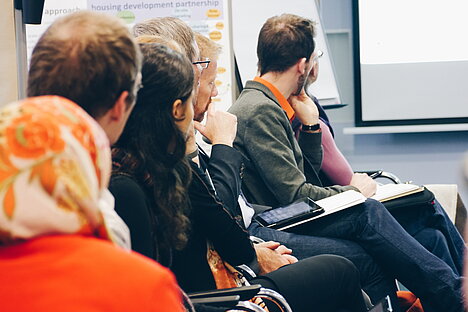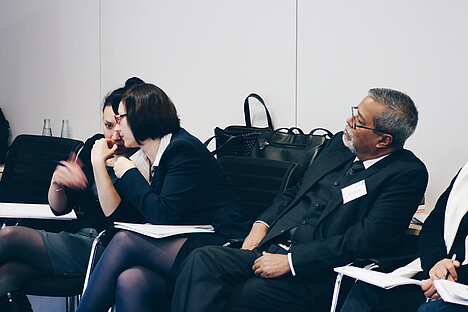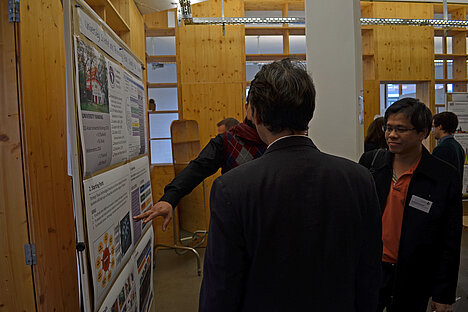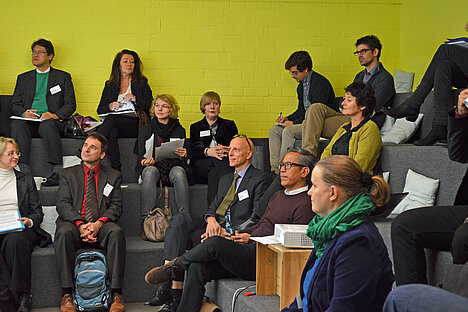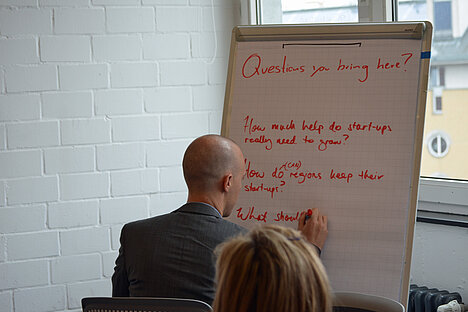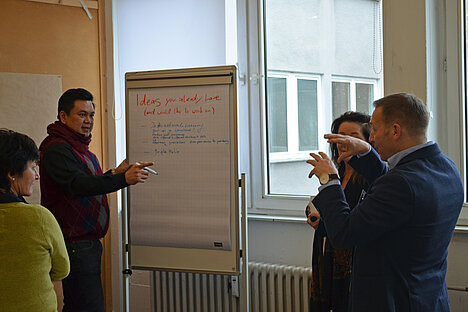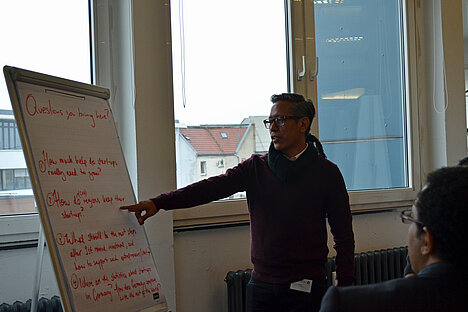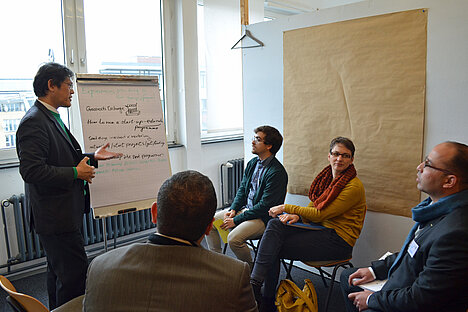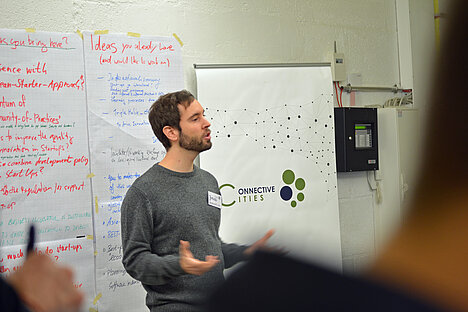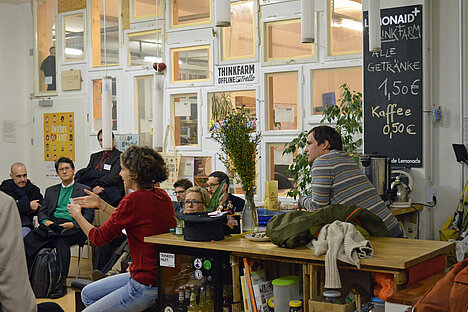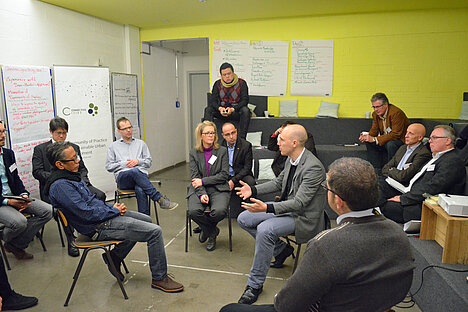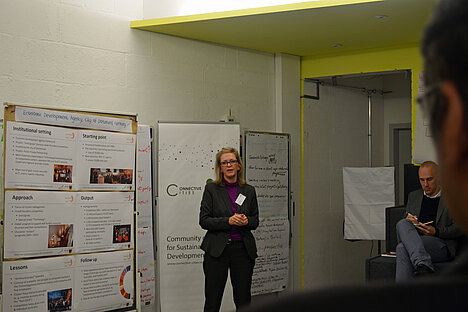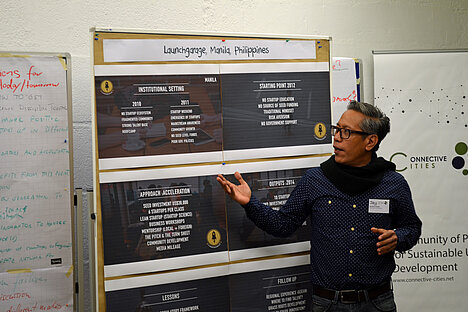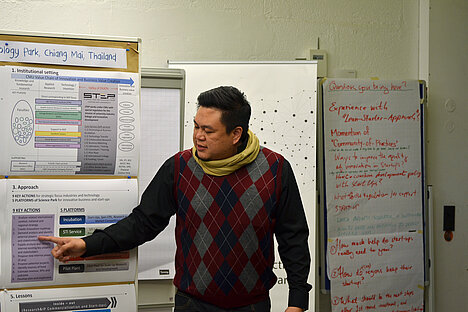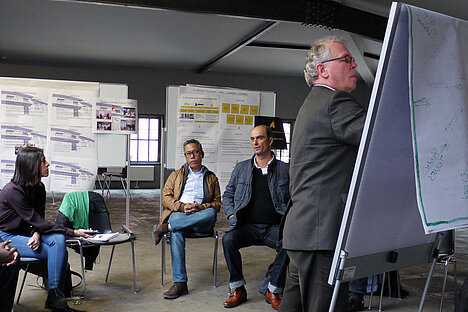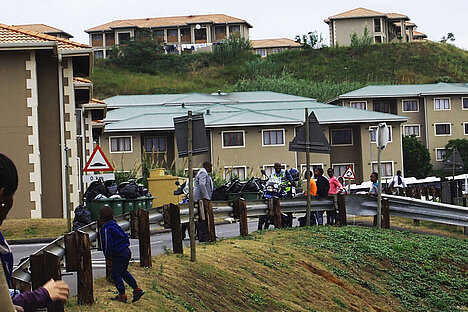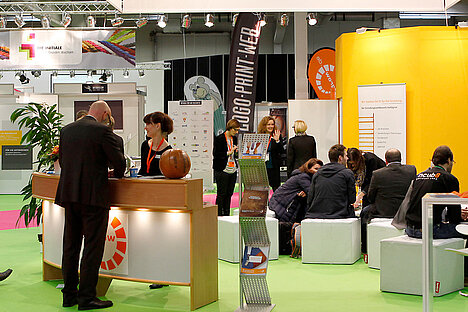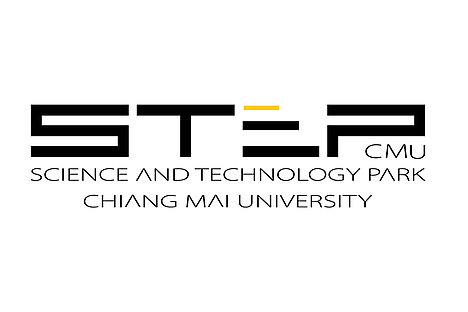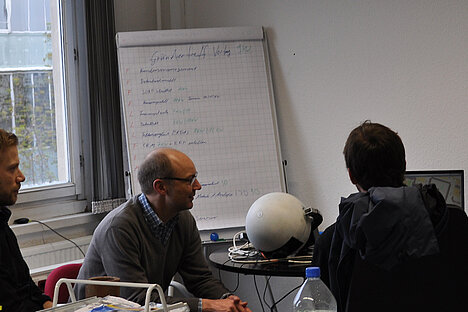- DE |
- EN
Connective Cities Dialogveranstaltung in Berlin, Deutschland
Übersicht
Vom 11. bis 13. Dezember 2014 fand im Betahaus, Berlin, die vierte Connective Cities Dialogveranstaltung statt, an der deutsche und internationale lokale Akteure teilnahmen, die direkt mit dem Bereich der lokalen Wirtschaftsentwicklung und Gründungsförderung verbunden sind.
Die Teilnehmer bestanden aus städtischen Vertreterinnen und Vertretern der Wirtschaftsförderung sowie Vertreterinnen und Vertretern von Start-up-Fördereinrichtungen aus deutschen und asiatischen Städten.
Für die städtische sozioökonomische Zusammenarbeit, die angewandte Forschung und Wissensarbeit sowie für die Schaffung neuer Arbeitsökosysteme oder gemeindebasierter Unternehmen sind Kooperationsräume, Inkubatoren und Innovationslabore zunehmend relevante Konzepte. Sie demonstrieren neue "basisgetriebene" Praktiken der urbanen Koordination, kollaborationszentrierter Architektur und technologiebasierter Arbeit. Die gemeinsame Schaffung von sozioökonomischen Umfeldern nach den Prinzipien von z.B. Peer-to-Peer-Commerce und kollaborativem Konsum ist ein blühendes Phänomen, das die Nachfrage nach neuen Ansätzen des lebenslangen Lernens, der Stadtentwicklung sowie der regionalen Praxis zur Unterstützung der wirtschaftlichen Entwicklung zeigt. Diese Funktionen besagen, dass die genannten Ansätze relevante und integrative Instrumente zur Förderung städtischer Initiativen sind.

Programm
Agenda:
Keynotes
KEYNOTE by Prof. Dr Klaus Fichter, University of Oldenburg, Germany:
Founder Borderstep Institute for Innovation and Sustainability Germany
Präsentationen
Ahmed Bastawy, Alexandria, Egypt:
IceAlex
Dr Ralph Sonntag, Dresden, Germany:
Dresden exists
Pete Silvester, Yangon, Myanmar:
Project Hub Yangon
Claudia Müller, Berlin, Germany:
Hybrid Platform
Chalermpol Tuchinda, Thailand, Bangkok:
Software Park
Dr Anantana Tanyanuparb, Chiang Mai, Thailand:
Chiang Mai University Science and Technology Park
Ariyajitphaisal Phongsak, Chiang Mai, Thailand:
Software Industry Promotion Agency
Andreas Mündl, Bremen, Germany:
Promotional Bank for Economic Development, BAB
Jay Fajardo, Manila, Philippines:
Launchgarage
Sylvia Tiews, Dortmund, Germany:
City of Dortmund, Economic Development Agency
Gabriele Böhmer, Munich, Germany:
Munich Commercial Park
Ergebnisse
Ziel der Veranstaltung war es, einen Austausch von Guten Praktiken aus verschiedenen Städten zu initiieren, um Fragen nach relevanten Rahmenfaktoren für die Schaffung eines idealen "Start-up-Umfelds" zu behandeln. Darüber hinaus wurden zukünftige Kooperationspotenziale identifiziert, um Verbindungen zwischen den deutschen und asiatischen Projekten für gegenseitiges Lernen, Peer-to-Peer-Beratung und gemeinsame Projektentwicklung herzustellen.
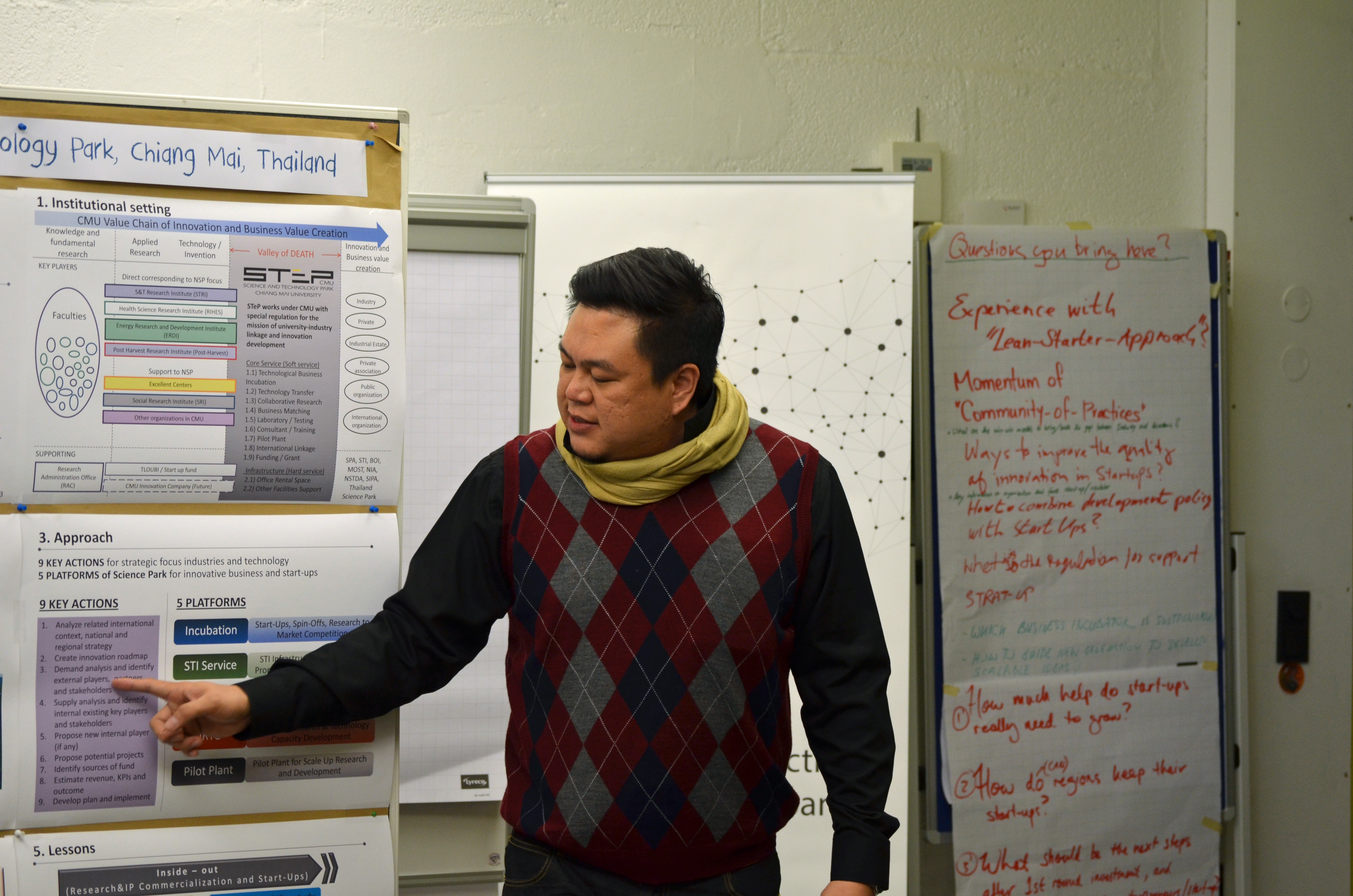
Bericht
Connective Cities Dialogue Event
<link file:1204 download internal link in current>Promoting Innovative and Sustainable Start-Ups, 11 – 13 December 2014 in Berlin, Germany
[pdf, 16 pp., 1,77mb]
Galerie
Video
Videodokumentation der Connective Cities Dialogveranstaltung in Berlin: Promoting Innovative and Sustainable Start-upsInterviews
Jay Fajardo is the Program Director of LAUNCHGARAGE, a start-up accelerator based in Manila, Philippines. He is the founder and CEO of Ruby development shop PROUDCLOUD, and co-founder and CTO of HealthTech startup MEDIFI. Holding roles as director, advisor, and mentor in various tech start-ups, Jay Fajardo is considered to be one of the thought leaders of the Philippines’ tech start-up scene. He was invited to participate in the Connective Cities workshop in Berlin due to his pioneering undertakings in an unexperienced Asian urban landscape.
Q. Tell us about the beginnings of LAUNCHGARAGE?
A. In 2008 I first initiated the so called Roofcamp, an innovation hub to bring young people together and give innovation and entrepreneurship in Manila a push. Offering a venue for teaching and learning, discussions and enable open collaboration was the goal. These unstructured gatherings lead to the first two Start-up Weekends in Manila and eventually, the foundation of start-up accelerator LAUNCHGARAGE in 2012. We fund and mentor selected early stage start-ups.
Q. Please share your expectations and motivations to join this event?
A. I have always have been interested in trying to learn from other start-up ecosystems around the world and I think this is a perfect venue to learn from peers, best practices, do study tours and share my own experiences. Also the networking part matters as it is crucial to have international contacts, thus access to global wisdom and expertise with a global flavor.
Q. After the first day of the workshop what have you learned so far?
A. From the first session day, I learned that a lot of the problems that we experience in Manila seems to be common with all the other ecosystems in the rest of the world. Not only including the practices presented from Thailand and Myanmar but also from the Global North, for instance the city of Dresden.
Q. What distinguishes this dialogue event in your eyes?
A. The initiative of this dialogue event is very unique. Cities in person of an expert shall connect with another and hopefully support each other in the future. It is the first step in the development of a network of emerging urban start-up hubs and smart cities around the world that share resources, knowledge, experiences and also exchange experts to learn from each other. These days in Berlin mark the starting point.
Q. What is the value add of such a global network of urban start-up hubs?
A. Every single ecosystem varies from each other because of market characteristics, cultural distinctions or resources available. Some cities have strength in engineering and others may have an exceptional market development. This is what makes it important for an ecosystem like mine in Manila to learn from the others. Despite regional differences, solution-oriented approaches can be modified and applied. Furthermore, in case we want to expand to the global market we are aware of what is available to us and what challenges may exist in each ecosystem or region.
Q. What are topics determined during the workshop to further work on?
A. A lot of people are eager to find out about the processes of different hubs and regions. You have to keep in mind that the topic we deal with is a very new thing for everybody. Not just in South East Asia but in Europe as well. Everyone is always learning and experiencing at this point. Best practices, individual business models, strategies for sustainability, assessing start-ups and ideas, the generation of revenue - all those are issues that we try to frame at this workshop and what would be very important take-aways from this event.


